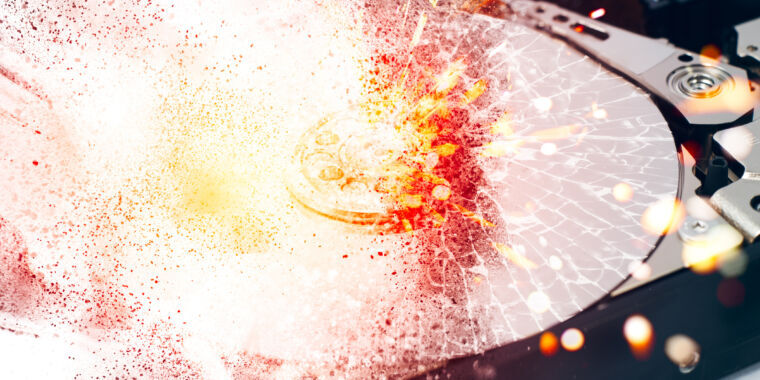- cross-posted to:
- hackernews
- cross-posted to:
- hackernews
My father told me he wanted to make USB flash drives of all the scanned and digitized family photos and other assorted letters and mementos. He planned to distribute them to all family members hoping that at least one set would survive. When I explained that they ought to be recipes to new media every N number of years or risk deteriorating or becoming unreadable (like a floppy disk when you have no floppy drive), he was genuinely shocked. He lost interest in the project that he’d thought was so bullet proof.



To me, this is just another story of the music industry’s technical incompetence.
Even in the 1990s, everyone would have known that hard drives were not a long-term archival storage solution. This is like crumpling up a piece of paper, tossing it in the corner, then being upset decades later when your “archival solution” had issues.
The piece of paper is basically much more likely to survive in a corner barring a fire. I have crumpled pieces of paper from 20 years ago. My PATA hard drive… I don’t even have a computer with that connector
A bunch of paper tossed into a corner could get wet, mouldy, get munched on by rats, etc. But, I know what you mean. Spinning plates full of magnetized bits with a connector technology that only lasts a decade at most is hardly going to be reliable, even if stored under ideal conditions.
Not to mention bit rot
I’m sure they considered anyone telling them they needed to spend money to be a pain in the ass the same way companies don’t follow the recommendations of their IT departments.
The problem isn’t even the hard drives, it’s how they are managing them. There’s not many digital data storage solutions around that you can dump into a closet for a few decades and then still read.
You have to regularly test your hard drives, so that when one fails you can take your other copy of the data and put it on a new drive.